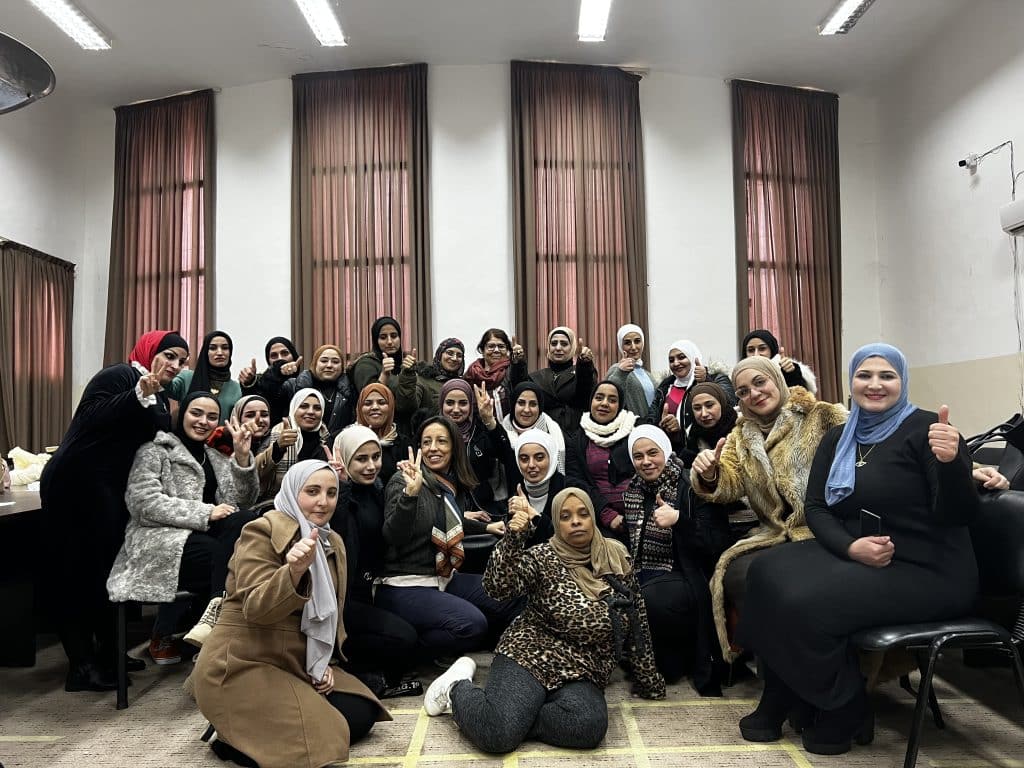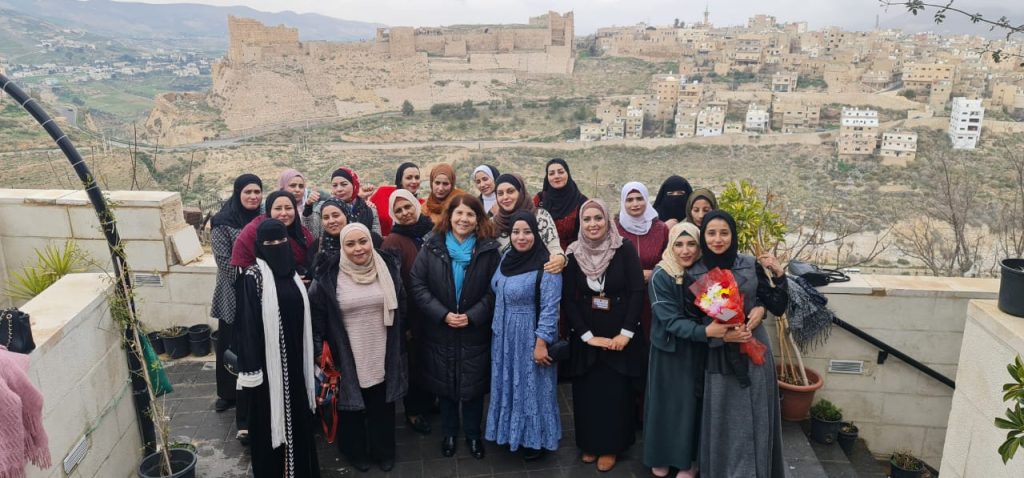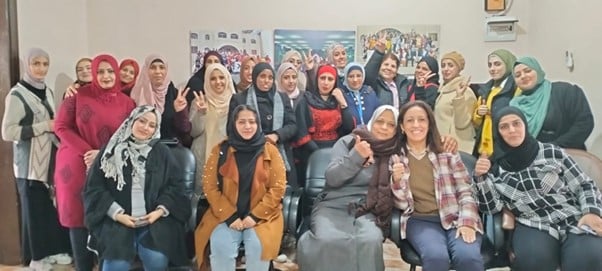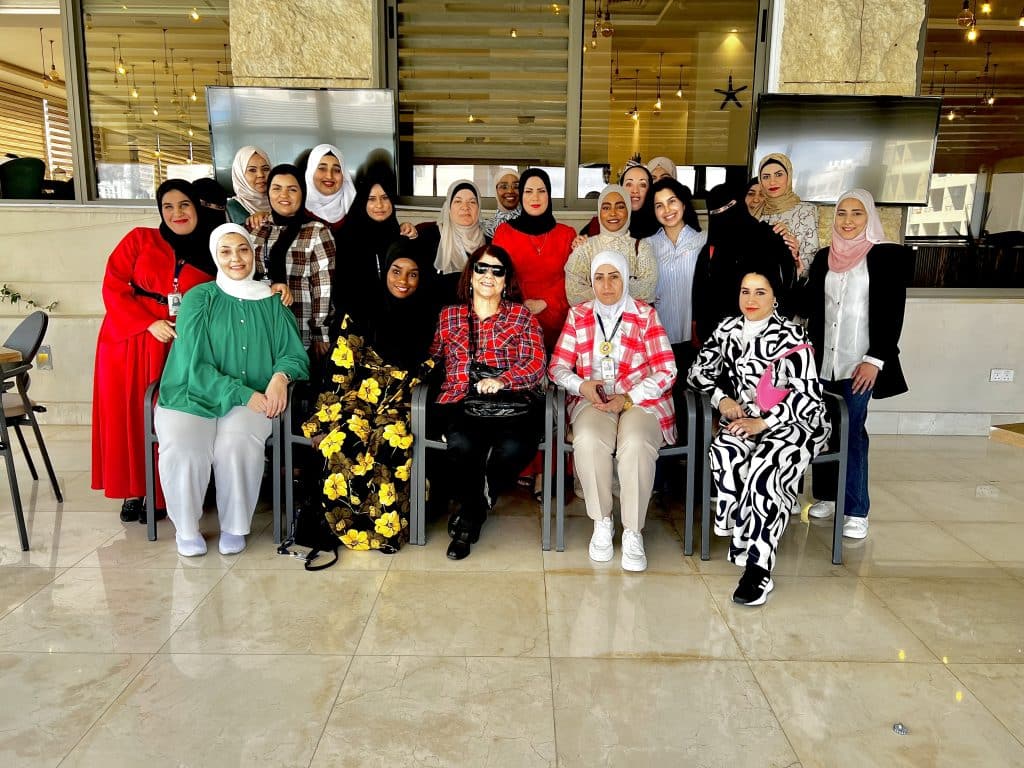AMMAN, Jordan, 29 February 2024 — ILO’s Better Work Jordan programme, in partnership with the General Trade Union of Workers in Textile, Garment, and Clothing Industries, is making significant strides in empowering female workers and boosting unionist capabilities within Jordan’s garment industry.
The “Collective Strength: Building Female and Unionist Capacities in Jordan’s Garments Sector” initiative has hosted a range of training sessions focused on promoting trade unionism, gender equality, and worker empowerment.
These sessions have benefited from the expertise of Morocco’s prominent trade unionist and labour rights activist, Touriya Lahrech, along with trainer Hind Mouttou.
The latest training course offered profound insights into the historical and contemporary achievements of Jordanian women across various fields, emphasising their crucial role and influence both nationally and internationally. This set the groundwork for exploring how unions can create a supportive environment for improving the working conditions of women in Jordan. Women factory workers in Jordan – in particular migrant workers – face challenging conditions that require interventions for improvement.
The training aimed to enhance awareness about union membership and the nuances of the recent Collective Bargaining Agreement (CBA) between the trade union and employers. Participants engaged in meaningful discussions about the details of the agreement and their hopes for future collective bargaining.
It encouraged discussions on effective communication strategies between labour committees, crucial for sustaining the trade union’s leadership in safeguarding workers’ rights, dignity, and achievements. These discussions led to the creation of a strategic action plan to boost union membership.
Lahrech emphasised the importance of disseminating the knowledge gained from the training, stating, “The insights we’ve acquired should be shared with our fellow Jordanian and migrant workers. The knowledge we’ve gathered belongs to the entire workforce, and it’s our duty to ensure it reaches them. There’s a sense of optimism that surrounds this mission.”
The initiative took place across various locations in Jordan, including the northern region, Dulayl, Karak, Tafilah, and Aqaba, from February 17 to 27, 2024. It successfully engaged over 100 female participants who work at the factory level, highlighting its extensive reach and impact.
Aseel Momani, a participant from the northern region, reflected on the training’s transformative potential, “The training provided invaluable insights into promoting women’s rights within the garment industry. I am inspired to implement what I’ve learned in my workplace and community, striving to make a tangible difference.”
Echoing Momani’s sentiments, Fatima Saideen, a garment worker from Aqaba, shared her personal growth, “The training enlightened me about laws I was previously unaware of. It was both enjoyable and enlightening, covering crucial topics. I’ve begun to discuss the union and its benefits with my colleagues, encouraging them to consider joining and sharing the valuable information I received during the training.”
From September to December 2023, the sessions aimed to empower trade union members with the skills and knowledge needed to advocate for workers’ rights, improve working conditions, and nurture positive workplace relations. Key topics included trade union principles, communication strategies, gender perspectives, and understanding the legal framework of trade union membership in Jordan. In March 2023, a comprehensive 12-day training enhanced female trade unionists’ understanding of workers’ rights under Jordanian law and international standards, including unratified ILO conventions. This training emphasised the importance of social dialogue, communication, networking, and negotiation skills, reinforcing the critical role of trade unions in advocating for workers’ rights through collective bargaining.
The Morocco-Jordan knowledge-sharing initiative aims to foster international cooperation, build meaningful connections, and strengthen linkages among workers, thereby enhancing trade unionism from the grassroots level upwards. By focusing on dialogue and skill-building, the initiative seeks to develop a more resilient and empowered workforce, ultimately benefiting both the workers and the industry at large.



